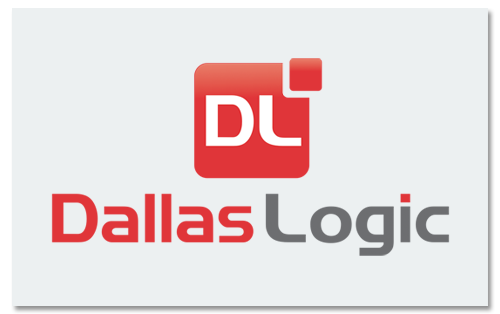What tasks are required to complete my product development, and what will you deliver to me?
A typical electronic product development can be broken down into the following broad categories:
Electronic/PCB Design
Software/FPGA Design
Enclosure Selection/Design
Manufacturing
When we provide a quote to you, each task which applies to your development will be listed with an estimate of hours required for completion. The costs for PCB manufacture, components, and assembly will also be included. Dallas Logic can provide production volume for your finished product. A general summary of design tasks are listed in the tables below.
Electronic Design Tasks
| Design Task | Deliverable | Notes |
| 1) Product specification and requirements. |
Sample_spec.doc | Supplied by customer or created as part of the development. See the Request Quote page for details of what this document should contain. |
| 2) Detailed physical circuit design. |
Sample_block_diag.ppt | Block diagram of all circuits and parts selected. Adds detail to any existing specification diagrams as submitted by customer. |
| 3) CAD parts library coding |
Sample.lbr | CAD part coding of non-standard and special components. |
| 4) Order components | Parts kit | Long lead components start after library coding. Will finish up at end of PCB layout. Also order programming cables or special lab supplies. |
| 5) Schematic capture. | Sample.sch | Circuit design is finished at completion of this task. |
| 6) Design of physical PCB. |
Define overall design rules (trace width and clearances) Power planes, copper Special PCB shape to fit off-the-shelf enclosure |
|
| 7) PCB layout | Sample.brd | Implement PCB outline and tooling holes, place components, manual route critical signals and power, auto route bus and local groups, auto route remainder, clean traces, clean silkscreen. |
| 8) Layout verification | Run DRC and verify all errors, manual check of PCB footprints against components or data sheets, manual check of critical nets. |
|
| 9) Gerber and fabrication drawing preparation and checking. |
Sample_gerb.zip
Sample_stackup.txt Sample_fab_top.pdf Sample_fab_bot.pdf |
Gerber files for board build. Read-me file defining layer stackup. Fabrication drawing to include auto dimensioning of board, with |
| 10) Select PCB fabrication vendor and transfer build files. |
Include electrical test of bare board. |
|
| 11) Initial component assembly |
Assembled PCB | Prototype for design verification. |
| 12) Design Verification |
Working PCB | Debug of design in lab. May require compliance testing (over temp/voltage). |
| 13) Schematic cleanup | Sample.sch
New revision |
New revision of the schematic. |
| 14) Layout clean up | Sample.brd
New revision |
New revision of the PCB layout. |
Manufacturing Tasks
|
1) Manufacturing test design |
Test software/files. Test fixtures |
Generate functional test procedures and required testing code. Will utilize working prototype board and test fixture to provide tests. Emphasis also place on Provide ICT (in circuit |
|
2) Packaging diagram and user documentation |
Sample_user_manual.doc Sample_pack_diag.ppt |
Will make use of specification document and circuit block diagrams, as well as manufacturers data sheets for components. Include example Packaging diagram and specifications for manufacturer |
|
3) Manufacturing parts kit and ship |
Manufacturing parts kit |
"Jelly-bean" parts generally supplied by manufacturer. Integrated circuits ordered and shipped to manufacturer. Can provide domestic or overseas assembly. |
|
4) Manufacturer support per build. |
Have manufacturer pre-build one board for testing prior to large production run (more than 10 units). |
|
|
5) Receive and test/inspect each board prior to customer delivery (one to hundreds of units) |
Working boards for customer |
Functional test may have already been run at manufacturers site (depending on production quantity). Full functional testing must be specified. |
|
6) Warrantee and return policy. |
Who and how will returns be repaired? |
Enclosure Design Tasks (as applicable to the PCB design)
|
1) Select off-the-shelf unit or specify design of custom enclosure. |
Manufacturers part number or mechanical drawings for custom enclosure |
This data will specify the shape and location of tooling holes on PCB. Generally plastic, aluminum, steel, fiberglass materials. |
| 2) Sub-system fit. |
Preliminary analysis of the sub-systems mechanical assembly. Might include batteries, cabling, displays, panel buttons, antennas, cover-plates, etc. |
|
| 3) Cosmetics. |
Any special requirements as far as color (painting), transparency, lighting. |
|
| 4) Indicators. |
Selection, fit and feel of buttons, switches, displays, etc. for user operation. |
|
|
5) Environmental analysis |
Ability of mechanical design to keep electronics within required operating range with respect to shock, temperature and vibration |
|
| 6) Compliance | FCC, EMI, UL |
 Dallas Logic
Dallas Logic